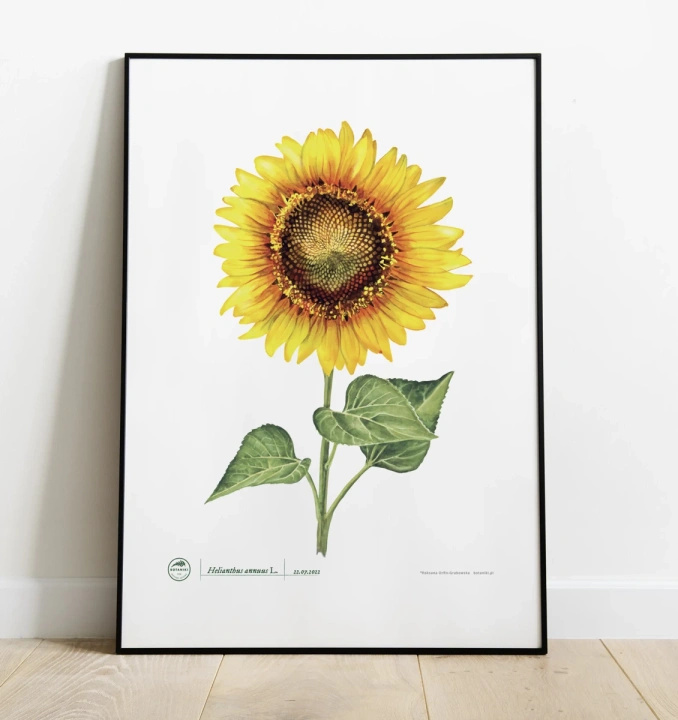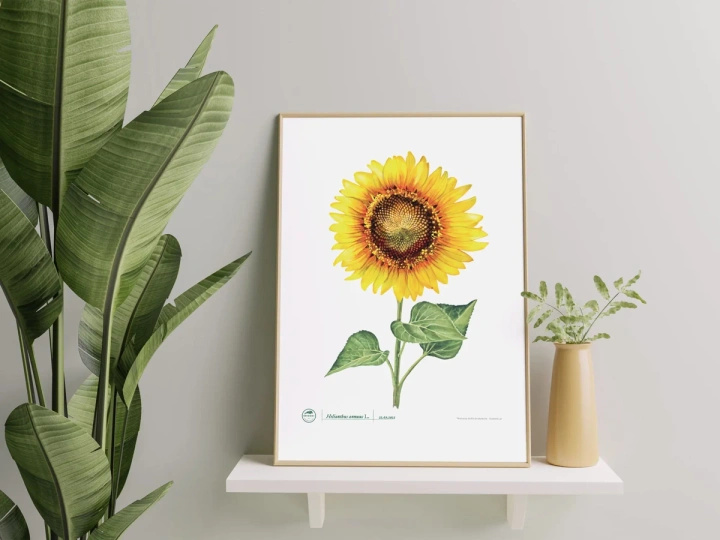Common sunflower — plant motif poster
- Poster measuring 32 x 45 cm printed on snow-white 250 g coated paper. When framed in an antique or classic frame with passepartout it will beautifully decorate your interior. Packed flat - no unrolling required.
Subscription products in your shopping cart
Set one delivery frequency for all subscription products in your cart every:
Subscription products in your shopping cart

The natural beauty of plants suitable for any room
The poster is a simple and effective way of providing your home with beauty and elegance. The plant themes on the botaniki posters have been created by Polish artists using watercolours to achieve beautiful and colourful graphics reminiscent of old herbariums from a time before the invention of photography. Each image has been scanned, digitally processed and printed on high quality chalkboard paper to ensure vibrant and long-lasting colours.
- Dimensions: 45 x 32 cm
- Paper weight: 250 g
- Shipped flat
- Sold without a frame
- Coated paper
Common sunflower
Helianthus annuus L.
Common sunflower (Helianthus annuus L.), sunflower, tournesol, girasol, Sonnenblume, zonnebloem - in many languages, the name of this plant refers to the sun not only because of the association with the solar disk. The flower basket of the sunflower rotates with its front to the sun - a phenomenon called heliotropism. The name sunflower comes from the Greek word for "sun" helios and "flower" anthos.
Sunflower belongs to the asteraceae family, which includes annual or perennial plants with erect, thick and stiff stems and single, hairy leaves. The flower basket consists of two types of flowers: the marginal, uvula-like flowers - which give color and character to the plant - are yellow, orange and red; the central, tubular flowers are brown, which form fruits, achenes, and produce fat-rich seeds.
Sunflowers are not demanding to grow, but they grow best in sunny positions, in fertile soils, rich in nutrients and slightly moist.
It is worth fertilizing them regularly, they are sensitive to deficiencies of potassium, boron and molybdenum.
Sunflowers are propagated by sowing seeds directly into the ground (usually in the second half of April or May), as they do not like transplanting.











